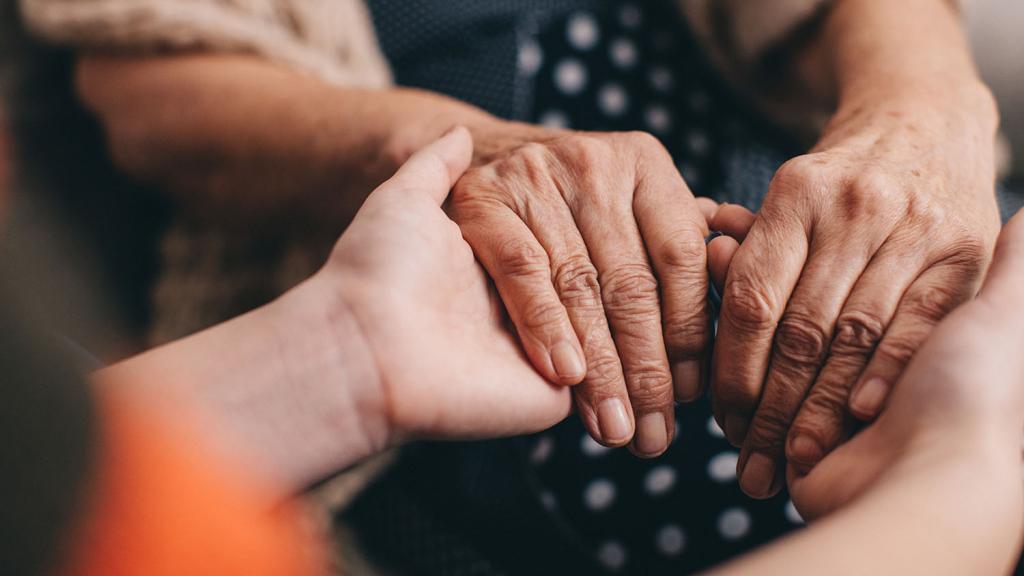6 Questions for Exploring Your Parkinson’s-Related Grief

Grief is part of the human experience and a natural response to loss we experience. We meet grief regularly throughout our lives as we lose or say goodbye to what we hold dear, be it the people we loved, the things and routines in our life that were important to us, or the plans or hopes we dreamed one day would come true. Grief is also part of the Parkinson’s disease (PD) journey as you experience changes to your body and life that you did not plan for or expect.
However, grief resulting from Parkinson’s-related losses can sometimes go unrecognized; you or others may recognize a change but not consider it a loss you are allowed to grieve. When you can identify your grief, you can begin to honor it. When you honor your grief, you can better understand your emotions and needs, and begin to chart a path forward.
Below are six questions to ask yourself as you start to explore the honoring of your grief:
1. Do I feel pressured to ignore my losses or hold back my grief?
In an effort to live well with PD, some people think they should always focus on the positive and never on the disease-related losses they experience along the way or the grief they feel in response. Never creating space for your grief is like denying part of what makes you human. Give yourself permission to acknowledge and respect all the feelings that arise for you — the positive ones and the ones rooted in grief.
2. Am I comparing how I feel about my losses? Am I judging how I am coping?
A Parkinson’s-related change to your life can be a mere inconvenience for you, but that same change for someone else with PD can be experienced as a traumatic loss, and vice-versa. The changes you are forced to adapt to because of Parkinson’s will mean something unique to you, and your response to that change will be unique to you. Avoid comparing or judging yourself harshly about what you consider a loss or about the type of support you need to cope with it.
3. What is my primary style of grieving?
Some people grieve primarily through their emotions while others grieve primarily through their actions. Neither way is right or wrong and both have their benefits and drawbacks. Identifying your primary grieving style can help you better understand your approach to grief; it is what works for you. If you feel like your grief style is not working for you, it may help to seek extra support.
Here are two common ways people process their grief:
- Intuitive Grieving: People who are primarily intuitive grievers work through grief by expressing their emotions and talking about their feelings.
- Instrumental Grieving: People who are primarily instrumental grievers work through grief by asking questions, gathering information and completing tasks.
- Tip: Although you may have a primary style of grieving, most people fall along a continuum of these styles and not squarely within one or another. Some people think they are “doing grief wrong” if they are not crying enough or because they are “too emotional.” Again, there is no right or wrong way, but reach out for support if you feel stuck.
4. What does my body need to navigate this grief I’m feeling?
The feelings you experience from a PD-related loss don’t just sit in your heart or your head. Your body holds your grief, too. When you are struck by a new loss or are having a day when you are remembering several losses, consider what your body needs to get through this difficult time. Your body may need rest or exercise, hydration or a nutritious meal, a hug or massage, space or fresh air, patience or forgiveness.
5. Who can I turn to when I’m having a heavy grief day?
Sometimes grief is just too much for one person to navigate on their own, so it helps to know who you can call on for support. This might be a trusted family member, friend, or neighbor, someone on your PD care team like a social worker, counselor or support group, or members of your spiritual, civic, or virtual communities.
If you are navigating this hard day on your own, consider what you would tell your best friend if they were going through what you are experiencing, and act as your own best friend as you grieve. Think about how you have navigated difficult times in the past and whether you can apply any of that wisdom to your grief today. Identify how you can show your mind, body, and heart some compassion and tenderness. Reflect on whether a distraction from your grief might help right now or whether it might help to just cry.
For more grief resources please see our list at the end of this article.
6. Who or what helps me feel like the whole person that I am, despite my losses?
Having a chronic condition like PD can change the way you see yourself. Sometimes if PD-related losses accumulate, you might feel like important parts of your identity are also lost. Especially when you are grieving, it is important to remember that you remain a whole person and that you are still growing as a person, despite what has changed or been lost. Think about who or what in your life helps you feel like yourself, the whole you, and try to reconnect with whatever or whomever that is. If you are struggling with this, reach out to someone you trust or a member of your care team.
As you consider the idea of honoring your grief, remember that you are honoring yourself in the process. Share your story of how you honor your grief and yourself by submitting a My PD Story.
Grief resources that can help:
- Healthline: Disenfranchised Grief
- The Center for Loss and Life Transition: Embracing the Sadness of Grief
- What’s Your Grief
- Care Partner Grief: 8 Ways to Care for Yourself During Bereavement
- Care Partner Program: Ambiguous Loss
Find your nearest support group and more information on Parkinson’s by calling our Helpline at 1-800-4PD-INFO (1-800-473-4636).
Related Blog Posts

Defining Parkinson’s Disease for the Next Generation of Therapies

